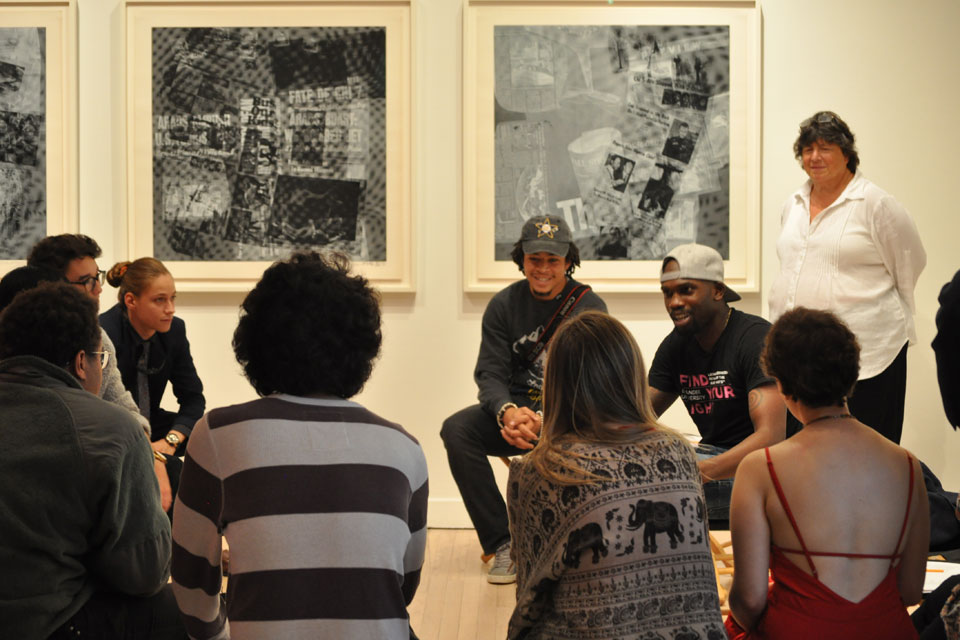Overview

The 2016 Salon Series
The minor in Creativity, the Arts, and Social Transformation offers a coherent curriculum designed to support Brandeis undergraduates with interests in the arts and creative expression as well as commitments to understanding and advancing social justice and the transformation of conflict. It grew from within the global network of the International Center for Ethics, Justice and Public Life and the resources of the university's faculty members and cultural organizations with the interests, talents and energy of Brandeis students.
It is designed to engage students intellectually and creatively with phenomena such as, for example:
- the roles of music in the American civil rights movement and the struggle against apartheid in South Africa — and in opening people’s hearts and minds to cultures other than their own, as we witness here each semester through MusicUnitesUS;
- the contributions of performance to both liberation and reconciliation, as manifested in global movements of Theatre of the Oppressed and Playback Theatre — forms that are taught here in the Department of Theater Arts;
- the power of iconic works such as Picasso’s Guernica as well as the community mural-making projects that engage people on opposite sides of sectarian and other divides;
- the Indigenous rituals that laid the groundwork for the apology of the prime minister of Australia to members of the “stolen generation;”
- the poetry carved into Styrofoam cups in the cells of Guantanamo and spoken in slams where marginalized communities construct narratives of self-definition essential for participating in democracy.
The borderland between human suffering and human possibility is filled with creative expressions, some virtuosic, some inclusive; some enduring and some ephemeral; some direct and content-driven, others that invite us into qualities of presence that subtly open us to new perceptions of ourselves, each other, and the world.
Students in the CAST minor will:
- explore a broad picture of the creativity, the arts and social transformation field and engage deeply in a few of its manifestations.
- experience and compare different modes of inquiry and presentation, linking theory and practice.
- understand the paradoxes inherent in work in this area, as well as the risks of doing harm and ways to minimize them.
Students in the minor are required to take five courses, including the core course CAST 150b, "Introduction to Creativity, the Arts, and Social Transformation," which should be taken as early in their studies as possible. They must complete the four additional courses from a list of electives (at least one of these four electives must be a course designated as a “core elective” in the minor), including at least one each from the Division of the Humanities, the Division of the Social Sciences, and the School of Creative Arts. Details can be found in the University Bulletin.
Minors are strongly encouraged to take the optional four-credit CAST Theory and Praxis of Community Engagement as the culmination of their program. This capstone course provides opportunities for minors to reflect on and integrate learning from their elective courses; to propose, design, and implement projects in the field of arts, culture, and social transformation; to work in and engage community ethically; to provide and learn from peer feedback; and to develop skills in documenting and evaluating projects. Theory and Praxis of Community Engagement is offered each spring semester and counts as a core elective in the minor.
Whether CAST graduates choose to engage as witnesses, participants, artists, facilitators, administrators, educators or policymakers, they will be aware of the multiple modes of understanding and engagement required for ethical and effective work at the nexus of arts, culture, social justice and peace.